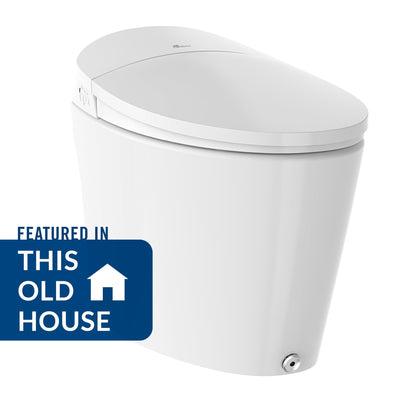How to Improve Gastrointestinal Health
Everyone has some experiences with an upset stomach. Common problems like gas or constipation might be inconvenient and uncomfortable, but if symptoms aren’t persistent, you may not think too much about your overall gut health.
Even if you don’t have persistent stomach issues, you may find by improving your gastrointestinal health can reduce the risk of developing problems later in life.
What Are Common Stomach Problems?
Some common stomach problems include:
- diarrhea
- constipation
- indigestion
- heartburn
- gas
If you experience these conditions frequently, you should talk to your doctor.
How to Prevent Stomach Problems
Some stomach conditions are genetic, but many are caused by diet and lifestyle, which means we can reduce stomach problems by eating healthier foods and monitoring what food or beverages tend to cause symptoms.
Eat Real Food
The Western diet includes plenty of processed foods. This includes refined carbs, saturated fats, and food additives. Food additives have been linked to health problems, including conditions like leaky gut. Artificial sweeteners, popular in food products that claim to have lower calories, can trigger symptoms of bloating or diarrhea. One artificial sweetener, xylitol, led to these symptoms in 70% of people, according to one study.
The Fix: Eat fresh or frozen vegetables without preservatives or additives. If it came from a box or has a commercial on television, it’s likely processed.
Eat Foods with Fiber
Both soluble and insoluble fiber offer important health benefits to support the digestive system.
Soluble fiber adds bulk to your stool by absorbing water, while insoluble fiber helps move waste efficiently through the digestive tract.
Diets high in fiber can reduce the risk of developing certain stomach issues like ulcers, irritable bowel syndrome (IBS), and acid reflux.
Foods high in fiber include oats, nuts, vegetables, whole grains, and wheat.
The Fix: Work high-fiber foods into at least one meal per day. Having oatmeal for breakfast, for example, is an excellent way to ensure fiber has a place in your diet.
Drink Enough Water
Hydration is key. Dehydration is one of the most common causes of constipation. Avoid being backed up by taking in water consistently throughout the day. Most adults should drink between 50-70 ounces of water per day. You may need to drink more to meet your needs if you exercise or live in a warm climate.
The Fix: Use a BPA-free water bottle and set a goal to drink as many bottles of water per day as you need to meet your goal. Keep your water bottle with you throughout the day and consider drinking caffeine-free drinks to add flavor and variety.
Exercise for Your Digestive System
Exercise lowers the risk of cardiovascular disease, improves weight management, and supports a healthier digestive system. When you get yourself moving, you get your digestive tract moving, too. Even a simple walk after a meal can improve your digestion. People who run or cycle see increased gut transit time by almost 30%. Daily exercise by those with chronic constipation saw a significant improvement by adding 30 minutes of walking to their day.
The Fix: Go for a family walk after dinner or consider walking to work. It can also be convenient to walk during your lunch hour.
Whole Body Health with Bio Bidet by Bemis
From the health benefits of our bidet seats and bidet attachments to improved indoor air quality with our air purifiers, we offer products to keep you and your family living their best lives. Join our newsletter for deals and health resources or let us know how we can help you find the perfect addition to your bathroom, kitchen, or any room in your home.
Questions? Contact us for help choosing the right product and getting it installed! You can also check out our bidet quiz to narrow down your bidet options to suit your needs.




